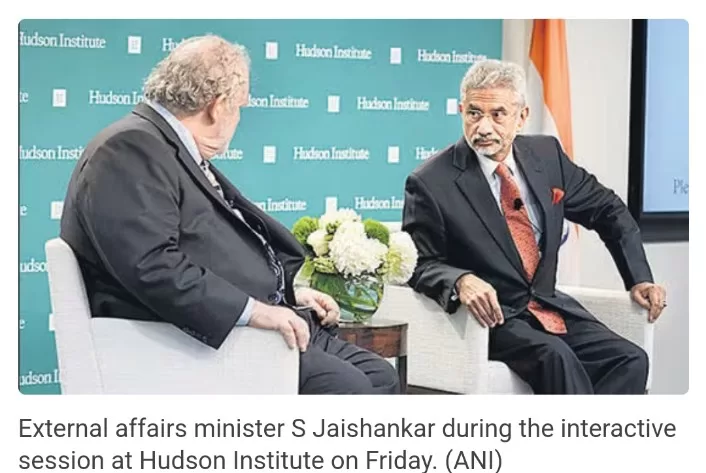In an insightful address, India’s External Affairs Minister, S. Jaishankar, alluded to Pakistan’s ongoing crisis, attributing it to deep-rooted and persistent issues. While not explicitly naming Pakistan, he emphasized that several long-term challenges had converged, resulting in a formidable predicament for India’s western neighbor.
Speaking during an interactive session at the prestigious Hudson Institute, Jaishankar highlighted that numerous nations worldwide were grappling with diverse crises. However, he specifically focused on Pakistan’s predicament, highlighting the severe economic challenge and political instability afflicting the country.
Jaishankar underscored the significance of addressing these challenges through a historical lens, acknowledging that they stem from distortions introduced into the natural progression of Pakistan’s economy. Factors such as excessive military expenditure, imprudent borrowing practices, and underperforming infrastructure have compounded the nation’s difficulties, leading to a convergence of multiple issues.
Regarding regional cooperation, Jaishankar touched upon the South Asian Association of Regional Cooperation (SAARC), a regional body that has not convened a summit since 2014. He explained that SAARC’s dormancy was an exception, primarily due to the persisting belief of one member that it could engage in terrorism without incurring consequences.
India, in contrast, has been proactively pursuing regional and global cooperation across various platforms, bridging both traditional and contemporary initiatives. Jaishankar’s remarks underscored the need for SAARC to transcend its current state of inaction, emphasizing that one member’s support for terrorism should not deter the entire region from moving forward.
In conclusion, Jaishankar’s remarks shed light on the complex challenges faced by Pakistan, stemming from long-term issues, and urged the regional community to reinvigorate SAARC, transcending the barriers that have hindered its progress.







